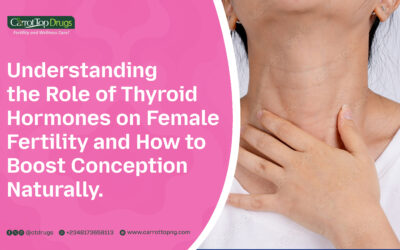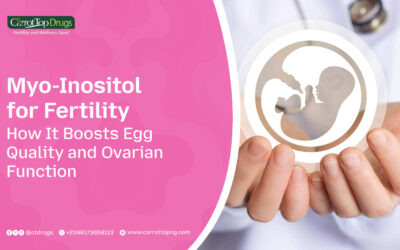Introduction:
Over the years, the connection between body weight and fertility has become a focal point of research and discussion, particularly in the context of female reproductive health. Among the various factors influencing fertility, the impact of being overweight is a topic of increasing concern. This article delves into the relationship between female fertility and excess weight, exploring the implications and shedding light on the statistics that underscore this connection.
Weight can be classified by the body mass index, or BMI, which is a measure of body fat based on height and weight that applies to adult men and women.
A BMI of less than 18.5 is considered underweight.
BMI over 25 is considered overweight.
A BMI greater than 30 is considered obesity.
Statistics:
Recent statistics reveal a concerning trend. It indicates a rise in the number of overweight or obese women facing challenges in conceiving. According to WHO, about 60% of women are overweight. The International Obesity Task Force revealed that about 1.1 billion people are overweight with about 312 million of them obese.
Simon C. Langley-Evans et al. revealed that about 39 million pregnancies are complicated by obesity globally. In some countries like the US, South Africa, etc, the prevalence of overweight or obesity in pregnancy is over 60%.
These statistics serve as a wake-up call, highlighting the need to understand the ramifications of excess weight on fertility.
Menstrual Irregularities
Excess weight can exert a profound impact on female fertility, notably through the disruption of menstrual cycles. The connection between the impact of being overweight on female fertility and irregular periods is a critical aspect of this complex relationship. Women carrying excess weight may experience irregular menstrual cycles, a factor that goes beyond mere inconvenience and directly affects fertility.
Menstrual irregularities, within the context of the impact of being overweight on female fertility, unfold as a pivotal challenge. The disruption in the regularity of menstrual cycles can be attributed to the intricate interplay of hormones influenced by excess weight. This imbalance often leads to unpredictable and irregular periods, throwing off the carefully orchestrated timing of ovulation. Consequently, the ability to accurately predict the fertile window diminishes, hindering the chances of successful conception.
The impact of being overweight on female fertility is further underscored by the cascading effects of irregular periods. The irregularity not only complicates the planning of conception but also reflects an underlying disturbance in the hormonal milieu crucial for reproductive health.
Hormonal Imbalance
The intricate hormonal processes vital for fertility can be significantly disrupted by the impact of being overweight on female fertility. This is seen particularly through the induction of hormonal imbalances. Excess weight, acting as a catalyst, can lead to disturbance in key reproductive hormones like estrogen and insulin. This creates a domino effect that reverberates throughout the delicate web of hormonal interactions essential for fertility.
The impact of being overweight on female fertility manifests as hormonal imbalances. It creates a challenging terrain for reproductive health. Estrogen, a pivotal hormone in the female reproductive system, may undergo fluctuations in response to excess weight. This disruption not only affects the menstrual cycle but also plays a role in the overall regulation of reproductive function. Additionally, insulin, a hormone intricately linked to metabolism, can experience disturbances due to excess weight. This further contributes to the complex hormonal landscape influencing fertility.
Reduced Ovulation
The impact of being overweight on female fertility extends to a critical aspect: reduced ovulation. Scientific studies indicate that women carrying excess weight may encounter a decline in ovulatory function. This reduction in the frequency of egg release becomes a significant factor contributing to the overall challenges faced in the journey towards successful conception.
The intricate connection between excess weight and reduced ovulation is a focal point within discussions on female fertility. Studies underscore that the hormonal disruptions caused by being overweight can directly influence the ovulatory process. This reduction in ovulation frequency not only narrows the window of opportunity for conception but also sheds light on the specific physiological changes that underscore the impact of being overweight on female fertility.
Polycystic Ovary Syndrome (PCOS)
One of the impact of being overweight on female fertility, a notable concern emerges in the form of a higher risk of developing Polycystic Ovary Syndrome (PCOS). Overweight individuals face an increased likelihood of encountering PCOS. It is a complex condition marked by the presence of cysts on the ovaries, irregular menstrual cycles, and hormonal imbalances. All of which collectively pose significant obstacles to fertility.
The connection between excess weight and the heightened risk of PCOS underscores a crucial aspect of the impact of being overweight on female fertility. PCOS, with its array of symptoms, directly influences reproductive health. The presence of ovarian cysts, irregular periods, and hormonal imbalances further accentuates the challenges faced by individuals navigating fertility in the context of excess weight.
Insulin Resistance
The impact of being overweight on female fertility delves into another significant aspect—insulin resistance. Excess weight increases the risk of having insulin resistance, a condition wherein cells exhibit reduced responsiveness to insulin. This phenomenon, with repercussions extending to ovarian function, becomes a noteworthy contributor to fertility challenges.
Insulin resistance, within the context of the impact of being overweight on female fertility, sets the stage for a cascade of effects. As cells become less responsive to insulin, the regulation of ovarian function is compromised. This disruption can influence the delicate hormonal balance necessary for successful fertility. The association between excess weight, insulin resistance, and its impact on ovarian function highlights a key intersection in understanding the broader challenges faced by individuals striving to conceive.
Impaired Egg Quality:
Considering the impact of being overweight on female fertility, a significant concern arises in the form of impaired egg quality. Overweight women may encounter a decline in the quality of their eggs, presenting a formidable obstacle to successful fertilization. This decline in egg quality not only makes the fertilization process more challenging but also heightens the risk of miscarriage, underlining the intricate connection between excess weight and the fundamental components of reproductive success. However, our Evergreen EggBoost is specifically designed to to reduce the impact of free radicals and boost the egg cells. Evergreen EggBoost is best taken along with Evergreen Formula for Women. They have a synergistic effect on egg cells.
Uterine Abnormalities
The impact of being overweight on female fertility delves into the realm of uterine abnormalities, revealing a noteworthy connection with obesity. Scientific investigations have established a link between excess weight and structural changes in the uterus, setting the stage for potential repercussions on implantation and the proper development of the embryo.
Obesity’s association with uterine abnormalities introduces a critical dimension to the discourse on the impact of being overweight on female fertility. The structural alterations in the uterus, influenced by excess weight, become pivotal factors influencing the implantation process. These changes have the potential to affect theembryo’s development, emphasizing the intricate relationship between obesity and the various elements crucial for successful conception.
Increased Risk of Gestational Diabetes
The impact of being overweight on female fertility extends its reach to the realm of pregnancy, specifically highlighting the increased risk of gestational diabetes faced by overweight women. This heightened risk poses a significant concern during pregnancy, potentially affecting the health of both the mother and the developing fetus.
The association between excess weight and the increased risk of gestational diabetes is a crucial facet within the broader discussion on the impact of being overweight on female fertility. Gestational diabetes, a condition that manifests during pregnancy, can have implications for maternal health, including an increased likelihood of high blood pressure and complications during delivery. Furthermore, the developing fetus may face an elevated risk of macrosomia (excessive birth weight) and subsequent health issues.
Complications During Pregnancy
The impact of being overweight on female fertility unfolds beyond conception and encompasses a heightened risk of complications during pregnancy. Being overweight predisposes women to risks like preeclampsia and gestational hypertension, presenting significant implications for the overall health of both the expectant mother and the developing baby.
This connection between excess weight and pregnancy complications highlights a critical aspect within the broader discourse on the impact of being overweight on female fertility. Preeclampsia, characterized by high blood pressure and potential organ damage. While, gestational hypertension which means elevated blood pressure during pregnancy, pose substantial risks to maternal well-being. Additionally, these complications can affect fetal development, potentially leading to preterm birth or low birth weight.
Impact on Associated Reproductive Technologies
The impact of being overweight on female fertility extends its influence to the realm of assisted reproductive technologies (ART), highlighting a significant consideration for individuals seeking fertility treatments. Overweight individuals may encounter reduced success rates when undergoing procedures like in vitro fertilization (IVF), emphasizing the critical role of maintaining a healthy weight in optimizing the outcomes of these advanced reproductive technologies.
This association between excess weight and diminished success rates in ART forms a pivotal aspect within discussions on the impact of being overweight on female fertility. The challenges posed by excess weight extend beyond natural conception and can impact the efficacy of fertility interventions. Addressing weight-related factors becomes crucial in maximizing the chances of success for individuals pursuing assisted reproductive technologies.
Lifestyle Changes
Balanced Nutrition:
Adopting a well-balanced and nutritious diet is crucial for managing weight and promoting overall reproductive health. Emphasize a variety of fruits, vegetables, whole grains, lean proteins, and healthy fats while minimizing processed foods and added sugars.
Regular Exercise:
Incorporating regular physical activity into your routine is key to weight management and overall well-being. Aim for a mix of cardiovascular exercises, strength training, and flexibility exercises. Consult with a healthcare professional or fitness expert to develop a personalized exercise plan.
Stress Management:
Chronic stress can impact hormonal balance and fertility. Explore stress-reduction techniques such as meditation, deep breathing exercises, yoga, or mindfulness to promote emotional well-being and enhance fertility.
Adequate Sleep:
Quality sleep plays a vital role in hormonal regulation and overall health. Aim for 7-9 hours of sleep per night to support optimal reproductive function. Establish a consistent sleep routine and create a comfortable sleep environment.
Limiting Alcohol and Avoiding Tobacco:
Excessive alcohol intake and tobacco use can cause fertility issues. Consider reducing alcohol consumption and avoiding tobacco products to improve reproductive health. If quitting tobacco is challenging, seek support from healthcare professionals or smoking cessation programs.
FAQs:
Q: Can losing weight improve fertility?
A: Yes, in many cases, adopting a healthier lifestyle including weight loss through balanced diet and regular exercise, can positively impact fertility by addressing hormonal imbalances and improving overall reproductive health.
Q: Is there a specific body mass index (BMI) range for optimal fertility?
A: While individual variations exist, maintaining a BMI within the normal range (18.5 to 24.9) is generally associated with better fertility outcomes. However, it’s essential to consider overall health and consult with a healthcare professional for personalized advice.
Q: Are fertility issues solely related to weight?
A: No, fertility is influenced by various factors, including age, underlying medical conditions, and lifestyle factors. While weight plays a significant role, addressing overall reproductive health is crucial for optimizing fertility.

















